Ep. 92: Bill Taylor – President & CEO of the Atlantic Salmon Federation ||
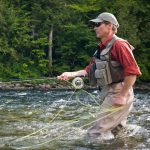 We welcome Bill Taylor – President & CEO of the world renowned conservation organization – Atlantic Salmon Federation.
We welcome Bill Taylor – President & CEO of the world renowned conservation organization – Atlantic Salmon Federation. .
In 2011, the Atlantic Salmon Federation (ASF) commissioned a report to calculate the economic impact for Atlantic Salmon in eastern Canada. The results presented $255 million annually – and supported 4000 jobs. Relating to the success of project one article explained “in our political climate, money talks, and government tends to invest in industries that provide economic benefits and jobs to communities.”
.
Just last year Bill and his international team brokered a very important deal to preserve the sanctity of salmon in the wild. A landmark, 12-year agreement with Greenland Fisherman to suspend the commercial harvest of Salmon, and limit the quota to 20 ton subsistence quota. This deal saves thousands of virile adult salmon every year.
– including open run fish.
Co-hosting the episode is Aaron’s father, Byron Niederhelman. With an undergrad in biology, and a Masters from Northeastern University – Byron taught Biology and Earth Science for 19 years. For 13 year more he was the Principal of ConVal High School in Peterborough, NH. Byron is an avid sportsman who for the past 25 years has been a busy traveler in search of the world’s best fishing spots.
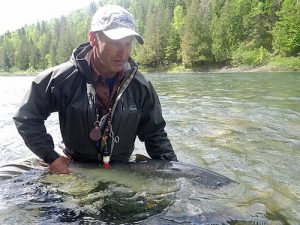
- Are salmon truly the canary-in-the-coalmine?
- Is their demise an accurate reflection of the health of our waterways and marine environments?
- If we want to preserve the natural migratory paths of animals – why not start with this iconic keystone species?
- Could cleaning up farming practices of salmon establish cash-flow to invest back into the natural environment for their natural cousins?
We answer these questions and more – on episode 92 of Sourcing Matters.
.
@AtlanticSalmonFed
co-host:
Byron Niederhelman
- Background in Biology
- Former Educator & Principal
- Avid Traveler & Fisherman
Full bio:
With an undergrad in Biology, a Masters from Northeastern University, Byron Niederhelman taught Biology and Earth Science for 19 years, and was for 13 years the Principal of the ConVal High School in Peterborough, NH. Byron is an avid sportsman who for the last 25 yrs. has been a busy traveler in search of the world’s best fishing spots.


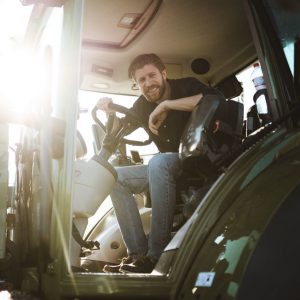 Through regenerative food production and forestry management; through hunting excursions and land stewardship initiatives; through a royal bed & breakfast and restaurant – Bösel offers patrons a unique experience dedicated to capturing and sharing the vitality found in nature’s systems. Since Benedikt has taken the reins of this 7500 acre estate located 1 hour east of Berlin – it’s become an Agtech innovation hot-bed, and an epicenter for testing / implementing Regenerative Natural Resource Management at scale.
Through regenerative food production and forestry management; through hunting excursions and land stewardship initiatives; through a royal bed & breakfast and restaurant – Bösel offers patrons a unique experience dedicated to capturing and sharing the vitality found in nature’s systems. Since Benedikt has taken the reins of this 7500 acre estate located 1 hour east of Berlin – it’s become an Agtech innovation hot-bed, and an epicenter for testing / implementing Regenerative Natural Resource Management at scale.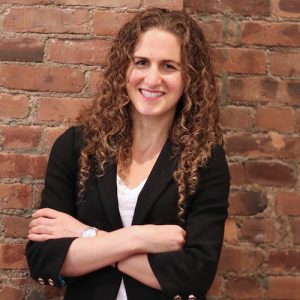 As Senior Advisor to Secretary Tom Vilsack at the U.S. Department of Agriculture, Sara Eckhouse focused on local and regional food systems, organic agriculture, and healthy food access. Sara launched and managed programs to support sustainable agriculture, and she has firsthand knowledge of the opportunities and challenges of combining sustainability with profitability in food value chains.
As Senior Advisor to Secretary Tom Vilsack at the U.S. Department of Agriculture, Sara Eckhouse focused on local and regional food systems, organic agriculture, and healthy food access. Sara launched and managed programs to support sustainable agriculture, and she has firsthand knowledge of the opportunities and challenges of combining sustainability with profitability in food value chains.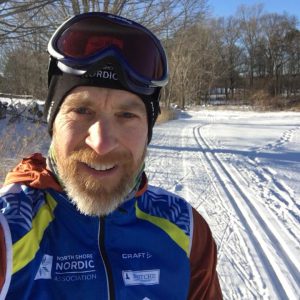 Using adaptive grazing is one important strategy to increase the soil health of our public grasslands and rangelands. For episode 85 of Sourcing Matters, consultant Greg Horner discusses his recent work interviewing innovative public land managers across the US about their use of adaptive grazing as a tool to improve soil health, restore ecosystem function, and increase biodiversity. While these agency staff are increasing soil health, they are also increasing soil carbon and making the land they manage more resilient to climate change.
Using adaptive grazing is one important strategy to increase the soil health of our public grasslands and rangelands. For episode 85 of Sourcing Matters, consultant Greg Horner discusses his recent work interviewing innovative public land managers across the US about their use of adaptive grazing as a tool to improve soil health, restore ecosystem function, and increase biodiversity. While these agency staff are increasing soil health, they are also increasing soil carbon and making the land they manage more resilient to climate change.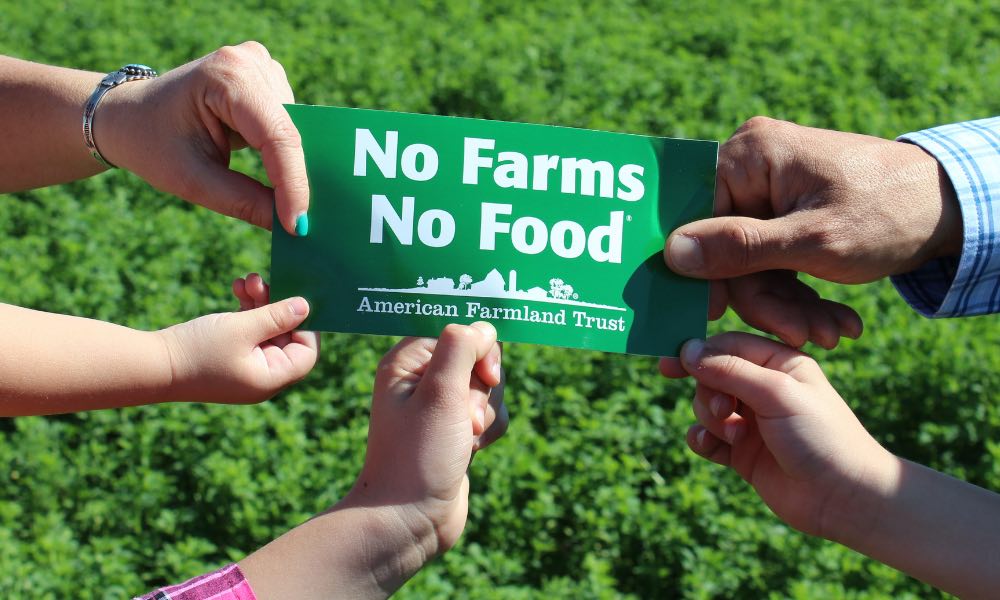
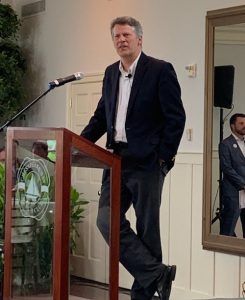 John Piotti joined American Farmland Trust as president and CEO in July 2016, bringing more than 25 years of executive management and public policy experience to the organization. Prior, John served as president and CEO of Maine Farmland Trust for 10 years. Under his leadership, Maine Farmland Trust became an award-winning statewide nonprofit organization, helping over 500 Maine farms remain viable. Piotti has earned a reputation as a nonpartisan problem-solver; as a Statesman, an Eisenhower Fellow – and – as a leader in future food that has helped stabilize a regional dairy industry, and procure funding to protect working waterfronts & our natural lands. John holds three degrees from the MIT, in engineering, public policy, and management.
John Piotti joined American Farmland Trust as president and CEO in July 2016, bringing more than 25 years of executive management and public policy experience to the organization. Prior, John served as president and CEO of Maine Farmland Trust for 10 years. Under his leadership, Maine Farmland Trust became an award-winning statewide nonprofit organization, helping over 500 Maine farms remain viable. Piotti has earned a reputation as a nonpartisan problem-solver; as a Statesman, an Eisenhower Fellow – and – as a leader in future food that has helped stabilize a regional dairy industry, and procure funding to protect working waterfronts & our natural lands. John holds three degrees from the MIT, in engineering, public policy, and management.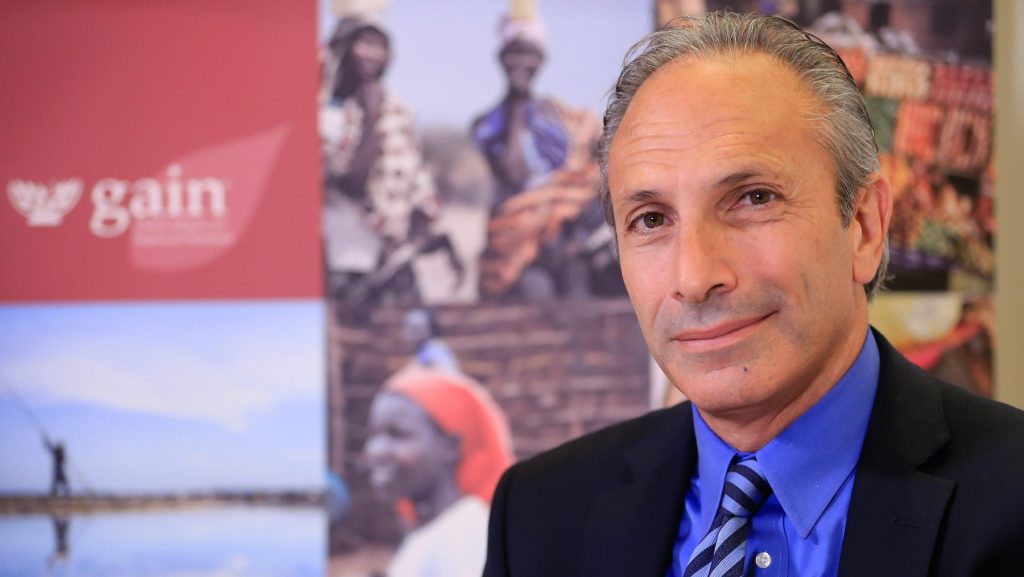 .
.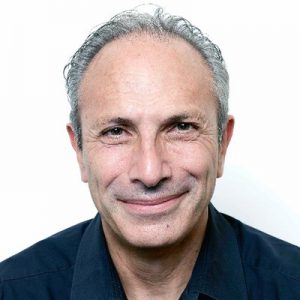 Dr. Lawrence Haddad became the Executive Director of GAIN in October 2016. Prior to this Lawrence was the founding co-chair and lead author of the Global Nutrition Report from 2014 to 2016. From 2004-2014 Lawrence was the Director of the Institute of Development Studies (IDS), the world’s leading development studies institute. Before joining IDS in 2004, he was Director of the Food Consumption and Nutrition Division at the International Food Policy Research Institute (IFPRI) from 1994 to 2004. An economist, Lawrence has a PhD in Food Research from Stanford University. Most recently, in June of 2018 – the World Food Prize Foundation awarded Dr. Haddad the 2018 World Food Prize.
Dr. Lawrence Haddad became the Executive Director of GAIN in October 2016. Prior to this Lawrence was the founding co-chair and lead author of the Global Nutrition Report from 2014 to 2016. From 2004-2014 Lawrence was the Director of the Institute of Development Studies (IDS), the world’s leading development studies institute. Before joining IDS in 2004, he was Director of the Food Consumption and Nutrition Division at the International Food Policy Research Institute (IFPRI) from 1994 to 2004. An economist, Lawrence has a PhD in Food Research from Stanford University. Most recently, in June of 2018 – the World Food Prize Foundation awarded Dr. Haddad the 2018 World Food Prize.
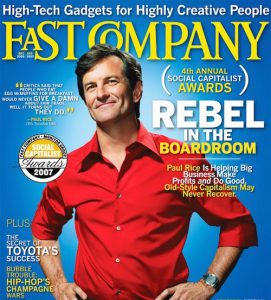 Twenty years later, Fair Trade has grown into a widely-known and increasingly mainstream consumer trend that is rapidly approaching an inflection point. In 2016, consumer recognition of the Fair Trade Certified label reached 67% and U.S. retail sales of Fair Trade products grew to an estimated $6 billion. Paul and his team have enlisted the support of over 1,300 companies, including market leaders like Green Mountain, Starbucks, Nespresso, General Mills, PepsiCo, Whole Foods, Costco, Target and Walmart. Fair Trade USA now certifies coffee, tea, cocoa, sugar, coconut, fresh fruits and vegetables. Most recently, through groundbreaking partnerships with Patagonia, West Elm and Gap Inc., Fair Trade has begun certifying apparel and home furnishings to improve working conditions and incomes for factory workers.
Twenty years later, Fair Trade has grown into a widely-known and increasingly mainstream consumer trend that is rapidly approaching an inflection point. In 2016, consumer recognition of the Fair Trade Certified label reached 67% and U.S. retail sales of Fair Trade products grew to an estimated $6 billion. Paul and his team have enlisted the support of over 1,300 companies, including market leaders like Green Mountain, Starbucks, Nespresso, General Mills, PepsiCo, Whole Foods, Costco, Target and Walmart. Fair Trade USA now certifies coffee, tea, cocoa, sugar, coconut, fresh fruits and vegetables. Most recently, through groundbreaking partnerships with Patagonia, West Elm and Gap Inc., Fair Trade has begun certifying apparel and home furnishings to improve working conditions and incomes for factory workers.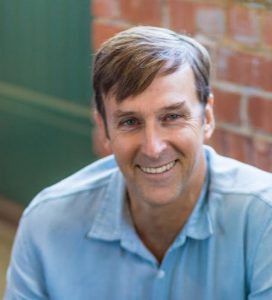 John Roulac started natural and superfoods brand Nutiva in 1999 because of his deeply held belief that it is his purpose to challenge the industrial food model and create a better food system to nourish people, communities, and our planet. Through his leadership, Nutiva has become one of the fastest-growing superfoods company in the world. Nutiva has been named one of Inc. Magazine’s fastest-growing private companies in America for seven years in a row – with sales topping $100mm in 2015.
John Roulac started natural and superfoods brand Nutiva in 1999 because of his deeply held belief that it is his purpose to challenge the industrial food model and create a better food system to nourish people, communities, and our planet. Through his leadership, Nutiva has become one of the fastest-growing superfoods company in the world. Nutiva has been named one of Inc. Magazine’s fastest-growing private companies in America for seven years in a row – with sales topping $100mm in 2015.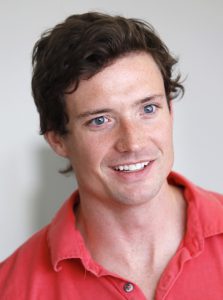 BIO: Luke Holden grew up in Cape Elizabeth, Maine – a third-generation lobsterman who started learning the trade at age 13. After attending Georgetown University and beginning an investment banking career on Wall Street, Luke was remiss to find that every lobster roll available in New York was overpriced, drowning in mayo, and diluted with celery. He craved a real Maine-style roll and simply couldn’t find one.
BIO: Luke Holden grew up in Cape Elizabeth, Maine – a third-generation lobsterman who started learning the trade at age 13. After attending Georgetown University and beginning an investment banking career on Wall Street, Luke was remiss to find that every lobster roll available in New York was overpriced, drowning in mayo, and diluted with celery. He craved a real Maine-style roll and simply couldn’t find one.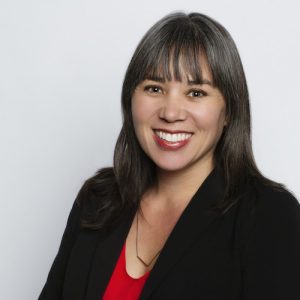 BIO: Before joining the foundation, Teresa Ish was the seafood project manager for the Corporate Partnerships Program at Environmental Defense Fund, where she worked with leading seafood buyers to develop and implement sustainable seafood purchasing policies. During her tenure at EDF, she played an instrumental role in merging the organization’s seafood buyer work and its extensive experience in the fishery policy arena. Prior to joining EDF, she co- founded FishWise and served as its director of science.
BIO: Before joining the foundation, Teresa Ish was the seafood project manager for the Corporate Partnerships Program at Environmental Defense Fund, where she worked with leading seafood buyers to develop and implement sustainable seafood purchasing policies. During her tenure at EDF, she played an instrumental role in merging the organization’s seafood buyer work and its extensive experience in the fishery policy arena. Prior to joining EDF, she co- founded FishWise and served as its director of science.